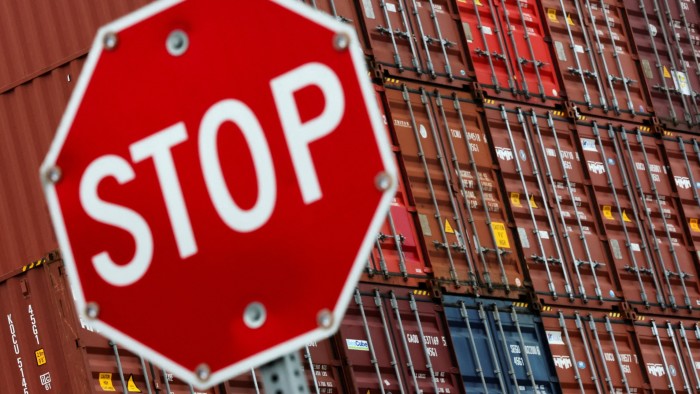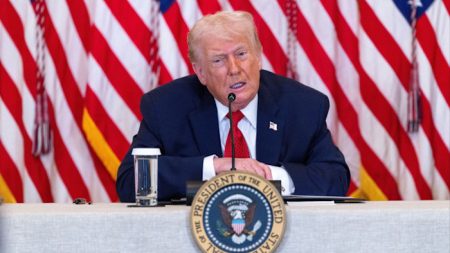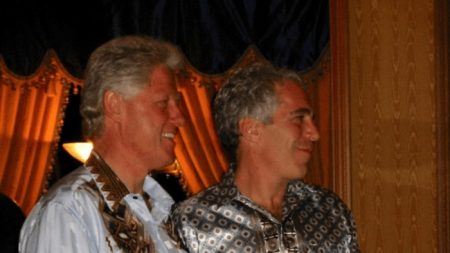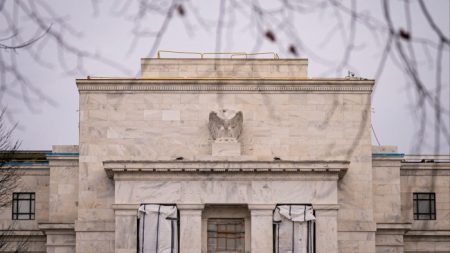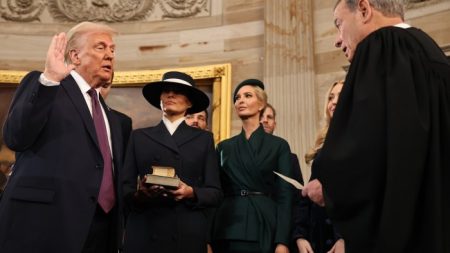Unlock the White House Watch newsletter for free
Your guide to what Trump’s second term means for Washington, business and the world
Donald Trump said he would impose tariffs of 30 per cent on Mexico and the EU from August 1 in a move that would further damage US relations with two of its closest trading partners.
The president issued the new tariff threats in two letters posted to Truth Social on Saturday morning.
While the letter to the EU followed a similar template to more than 20 other threatening missives the US president has posted this week, Trump also accused Mexico of “failing to stop the Cartels’’.
Earlier this year the US threatened Mexico and Canada with tariffs of 25 per cent to retaliate for what Trump said was a failure to halt illegal immigration and the flow of the deadly opioid Fentanyl across the countries’ shared borders with the US.
Trump acknowledged in his letter to Mexican president Claudia Sheinbaum that the country had “been helping” him to “secure the border”. But said the efforts had not gone far enough.
Both letters to the EU and Mexico blamed the US’s trade deficit with each country for the fresh tariffs. “The Trade Deficit is a major threat to our Economy and, indeed, our National Security !” Trump wrote.
The prospect of fresh levies on two of the closest US allies and trading partners caps a turbulent week in which Trump has threatened more than 20 countries with tariffs — as well as announcing imminent levies of 50 per cent on copper.
The letter to the EU comes even though European officials have spent weeks shuttling between Brussels and Washington to hash out a deal that could be accepted by EU member states.
The two sides have been working on plans to reduce the 25 per cent tariff on vehicles and are considering an agreement to abolish levies on spirits, aircraft and parts. The EU is also prepared to reduce its €198bn trade surplus in goods by committing to buy more US weapons and liquefied natural gas.
So far, the EU has not retaliated against Trump’s tariffs, which include a 25 per cent levy on cars and car parts, a 50 per cent tariff on steel and aluminium and a baseline 10 per cent tariff on most goods.
On Saturday European Commission President Ursula von der Leyen said that EU executive “take[s] note” of Trump’s letter.
“Imposing 30 per cent tariffs on EU exports would disrupt essential transatlantic supply chains, to the detriment of businesses, consumers and patients on both sides of the Atlantic,” she said.
The EU had “consistently prioritised a negotiated solution” with the US and was “ready to continue working towards an agreement by August 1”. The EU was also ready to impose counter tariffs “if required”, she added.
The 30 per cent threat — with more than two weeks of potential time remaining for talks on a compromise deal — appeared to be a negotiation tactic, according to one EU diplomat briefed on the discussions between Brussels and Washington.
Ambassadors from the EU’s 27 member states will meet to discuss the threat on Sunday afternoon, people briefed on the plans said.
In a statement, Italy’s prime minister Giorgia Meloni called for “goodwill . . . to reach a fair agreement that can strengthen the West as a whole”. “It would make no sense to trigger a trade war between the two sides of the Atlantic,” she said, adding that both sides should avoid “polarisation”.
Mexico, along with Canada, had already secured significant exemptions from the most dramatic of Trump’s levies, and had avoided being hit with a reciprocal tariff on April 2.
After unveiling tariffs of 25 per cent on its two biggest trading partners in March, Trump later walked back the attack and said the tariffs would not apply to any goods that complied with the terms of the US’s 2020 free trade agreement with its neighbours.
The exemption means that about 87 per cent of Mexican goods entered the US tariff-free between January and March this year, according to the Mexican economy ministry.
However, the country will still be hit with Trump’s tariff of 50 per cent on all steel and aluminium imports.
The Trump administration has also launched national security probes that could lead to tariffs on chips, lumber, aerospace parts, pharmaceuticals and consumer electronics.
Additional reporting by Alice Hancock and Henry Foy in Brussels and Christine Murray in Mexico City
Read the full article here




